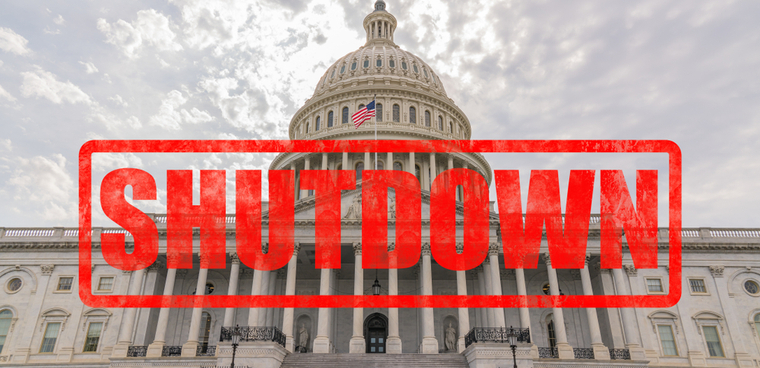Shutdown looks certain to last into 2019
House members have been told to expect no further votes this week, which puts the first paycheck of 2019 at risk for thousands of federal employees.

Legislators show no sign of moving to end the partial government shutdown before the next Congress convenes on Jan. 3 -- which would leave hundreds of thousands of federal employees in limbo for nearly a full pay period.
[Note: When originally published, this article incorrectly stated that affected federal employees would likely miss their final paycheck of 2018. According to Office of Personnel Management acting Director Margaret Weichert, feds caught up in the partial shutdown were paid on Dec. 28 for work through 11:59 p.m. on Dec. 21; that pay period was supposed to run through Dec. 22. The pay period that began Dec. 23 runs through Jan. 5, with paychecks expected on Jan. 11 (for electronic deposit) or Jan. 16 (for physical checks). "We remain hopeful that #Congress will resolve the #lapse in appropriations before the next pay cycle is impacted," Weichert wrote on Twitter.]
House Majority Whip Steve Scalise (R-La.) told House members on Dec. 27 that "no votes are expected in the House this week." The Senate was in session for just three minutes, with Sen. Pat Roberts (R-Kan.) the only senator visibly in attendance.
A significant portion of the government has been shut down since midnight on Dec. 21, as the House and Senate each passed spending bills that stalled in the other chamber. Lawmakers are now waiting on a negotiated deal between legislative leaders and President Donald Trump to fund the Departments of Homeland Security, Treasury, Commerce, State, Housing and Urban Development, Agriculture and Interior, as well as the General Services Administration, the Environmental Protection Agency and various smaller agencies.
An estimated 800,000 federal employees work at the shuttered agencies. About 400,000, including more than 210,000 at DHS, are considered essential and are required to work without pay during the period of a lapse in appropriations. These include border and airline security personnel, as well as Secret Service agents.
Essential employees must be paid for their time worked when funding is restored. Furloughed federal employees have no such guarantee, although Congress has historically paid those individuals as well. But any such paychecks will now be delayed until at least early January -- which could leave federal employees unable to pay their bills.
The Office of Personnel Management on Dec. 27 posted form letters that feds could use with landlords, mortgage companies and other creditors, while stressing that the agency "cannot provide … personal legal advice." Employees in need of such advice were urged to "consult with your personal attorney or contact your state or county bar association, many of which maintain lawyer referral services."
The Office of Management and Budget, meanwhile, has released updated instructions for agencies covering payroll procedures, leave and orderly shutdown procedures.
Shutdown guidelines vary from agency to agency, but typically involve a caution not to power up a government-issued computer or smartphone during the period of the shutdown, and a requirement for workers to change outgoing phone messages to reflect the lapse in appropriations.
Sen. Bob Corker (R-Tenn.) said on Dec. 21 that the Senate would not vote "until a global agreement is reached" to fund the government. President Donald Trump has tweeted repeatedly about the shutdown, but there have been no signs of progress toward such a global agreement.
The dispute continues to center on funding for a proposed border wall on the U.S.-Mexico border. President Donald Trump and conservatives in the House of Representatives are demanding such funding as a condition passing a broader spending bill, while House and Senate Democrats are refusing to support wall funding.
Adam Mazmanian contributed to this report.
NEXT STORY: NGA Announces New Director





